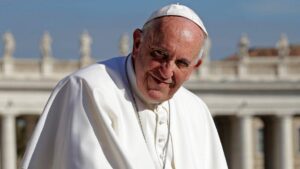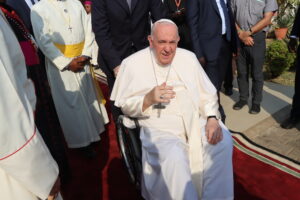SOUTH SUDAN: “Fabric of Sudanese Society has Been Torn Apart,” Catholic Bishops in South Sudan Lament

Sr. Jecinter Antoinette Okoth, FSSA
Following the ongoing civil war, that broke out in Sudan last year due to a fight between the leadership of the Sudanese Armed Forces (SAF) and the paramilitary group Rapid Support Forces (RSF), the bishops in the youngest nation in the world have expressed how the conflict has greatly damaged Sudan to the extent of nearly complete destruction.
After their three-day meeting in Juba from 27-29th June, members of Sudan and South Sudan Catholic Bishops’ Conference (SSSCBC), have noted that even though their key obligation is to the affairs of South Sudan, they cannot turn a blind eye to the sufferings of the people in their neighboring country, Sudan.
“While our primary responsibility is South Sudan, we cannot distance ourselves from our neighbour Sudan. The fabric of Sudanese society has been torn apart, with people shocked, traumatized, and disbelieving about the level of violence and hatred,” the bishops disclosed and clarified that the war is not simply “between two generals, as the military has inextricably embedded itself in the economic life of the country, and both SAF and RSF each have a network of wealthy elite Sudanese and international individuals and cartels who benefit from their control of various sectors of the economy.
The over one-year conflict which the Church leaders say has caused horrendous war crimes and human rights abuses committed by both parties has led the people of Sudan to “suffer a humanitarian disaster,” hence the appeal to the people of God to offer support through the provision of “humanitarian assistance, advocacy work for peace, preparation for “after the war” in terms of reconciliation, rehabilitation, reconstruction and trauma healing, and above all, to pray.”
They referenced the message from Bishop Tombe Trille Kuku of El Obeid Diocese, Sudan who painted a picture of the callousness of the concerned parties to allow peace reign in Sudan but instead are fuelling war that leads to more suffering of the people.
“So far there is not even a clue to the light of peace dialogue that can bring hope for the Sudanese. I believe that our leaders are not ready for peace. Fighting and conflict have the upper hand as we hear them say ‘Unless we defeat the other group, we won’t put down weapons,” the Prelates quoted Bishop Trille in their collective pastoral message.
They added, “The time has come for them to think of the people and nation. The more the fighting, the more people get scattered and the more hatred grows among various Sudanese ethnic groups. Kneel to pray, and hear the voice of God and the voice of the people, the children, the women that cry for peace, and also the blood that cries on the ground of very innocent people who died because of crossfire. Go back to dialogue as children of one mother and one father.” We endorse his words and call for unity “One Body, One Spirit in Christ.”
The Church leaders further appreciated Pope Francis’ concern for the Republic of Sudan when he said, “May the weapons be silenced and, with the commitment of the local authorities and the international community, help be brought to the population and the many displaced people. May the Sudanese refugees find welcome and protection in neighboring countries.”
The bishops, therefore, call on all the parties “to lay down their arms and enter into meaningful peace negotiations while they condemn the killing, raping, and looting of civilians and call for accountability for the crimes.
The Catholic bishops in South Sudan have appreciated the international community and Caritas Internationalis for their continued humanitarian support to both Sudan and South Sudan.
“However, we are concerned at the shrinking of aid, as other genuine causes such as Ukraine and Gaza compete for funding. While we recognize the legitimate needs of civilians in these other conflicts, and we extend our solidarity, prayers, and blessing to them, nevertheless we urge the international community not to forget the extreme humanitarian needs of Sudan and South Sudan,” they concluded.


